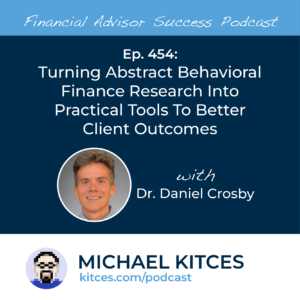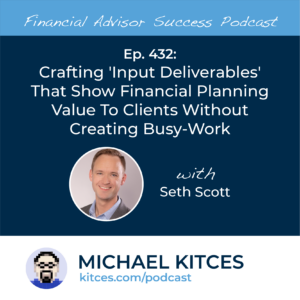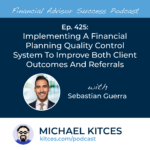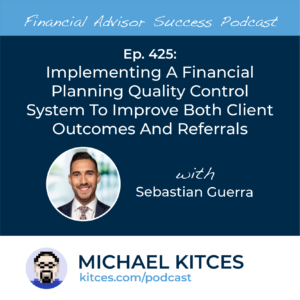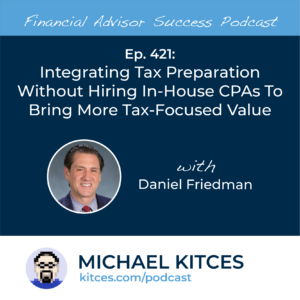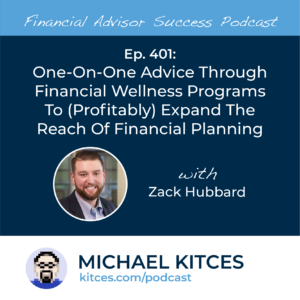
 Welcome everyone! Welcome to the 456th episode of the Financial Advisor Success Podcast!
Welcome everyone! Welcome to the 456th episode of the Financial Advisor Success Podcast!
My guest on today's podcast is Hilary Hendershott. Hilary is the founder of Hendershott Wealth Management, an RIA based in San Jose, California, that oversees $260 million in assets under management for approximately 150 client households.
What's unique about Hilary, though, is how she has successfully grown her firm from a solo practice to a larger advisory business in part by creating a company "blueprint" that serves as a cornerstone for how clients will be served and how staff will be treated.
In this episode, we talk in depth about how Hilary's blueprint includes each team member articulating their calling (for example, her calling is that "people are free and author their lives"), the firm's "ultimate intent" that "people are thriving" and the firm's promise to create an environment of safety, understanding and openness, how Hilary uses this Blueprint to inform client communication and serve as an important reference when making challenging business decisions, and how Hilary finds that the Blueprint is more effective than a traditional firm mission and vision statement (both because it's regularly put to use and because it's a living document that incorporates the values of current and new team members).
We also talk about how Hilary has stepped back from being the primary advisor as her firm has grown (with her now only serving 15 clients), empowering her team to take the lead on client relationships and giving her more time to attract new clients, how Hilary implemented a ‘diamond team' approach (made up of a senior advisor, two lead advisors, and an associate advisor, supported by a client service associate) to efficiently serve clients while allowing next-generation advisors to build their skills, and how that while Hilary frequently attracts new clients through her podcast and other content, this team approach allows her to emphasize to clients that they will get the same service experience no matter who their advisor is.
And be certain to listen to the end, where Hilary shares how she decided to stop offering a one-year financial coaching program based in part on the challenge of marketing it as well as her more traditional wealth management services, why Hilary compares advisory firm hiring to a dating process where it's important not only to assess an individual's ‘credentials' but also whether they are fully onboard with the firm's culture, and how Hilary has found that while transitioning from a solo practice to a larger advisory team has taken hard work and come with bumps along the way, it's allowed her to better leverage her human capital and provided her with greater freedom to design her life both inside and outside the workplace.
So, whether you're interested in learning about creating a "blueprint" that drives how your firm's staff and clients will be treated, the transition from solo advisor to the manager of an advisory team, or how to engage in a hiring process that leads to good-fit hires, then we hope you enjoy this episode of the Financial Advisor Success podcast, with Hilary Hendershott.


